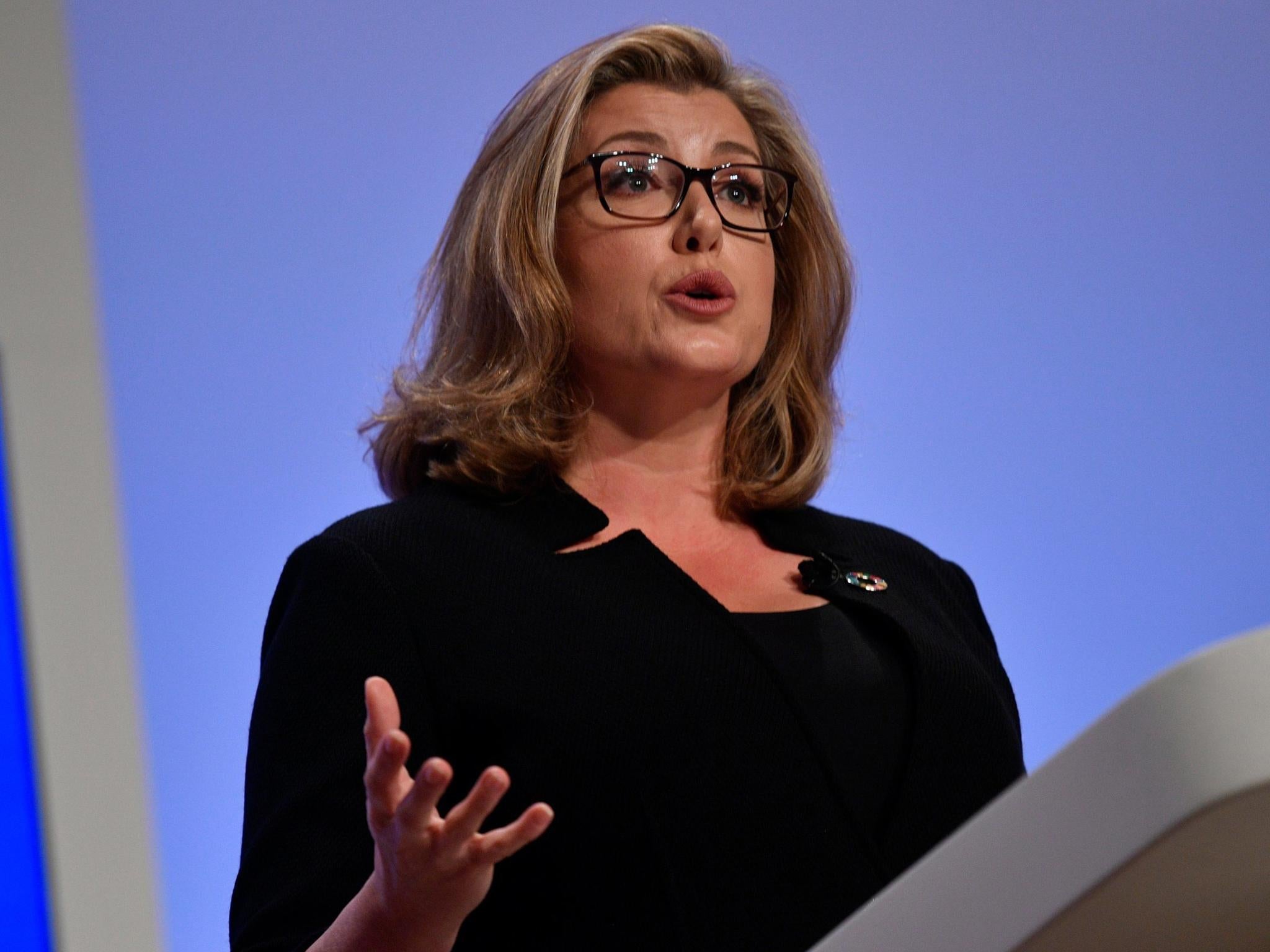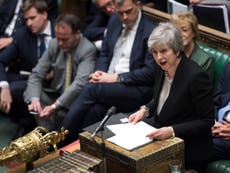Penny Mordaunt’s foreign aid comments make a mockery of ‘Global Britain’ after Brexit
Mordaunt called the overseas aid budget ‘unsustainable’ earlier today

One of the vanishingly few positive legacies of the two administrations led by David Cameron from 2010 to 2016 was the fulfilment of the United Nations pledge, long accepted by the UK, to devote 0.7 per cent of the national income to overseas aid, and towards the development of the most vulnerable people in the world.
Or so it seemed. Now, according to reports, the secretary of state for international aid herself, Penny Mordaunt, an ardent Brexiteer, is questioning the way the target is being set. She appears to be in a line of Department for International Development ministers who were placed in office despite their hostility to the entire remit of their department. Her predecessor, Priti Patel, who found herself distracted by Israel, was on record as favouring the abolition of DfID. It has not been a lucky ministry for its civil servants. Ms Mordaunt says the 0.7 per cent target is “unsustainable”. Well, for sure, it is more difficult to sustain if the UK slides into a post-Brexit recession, but it is still achievable, even so.
People of all persuasions may be tempted to ask: whatever happened to the Brexit dividend in public spending promised by the likes of Leavers such as Ms Mordaunt?
Instead of spending £350m a week extra on the NHS, and various other ways to boost the welfare of humanity at home and abroad, we are instead faced with bills for creating bogus traffic jams on the M20; for hiring ferry companies with no ferries to take goods to ports unable to accept them anyway; for buying “record” numbers of fridges for the NHS to stockpile drugs; and for the possibility of martial law. How many freshwater wells in sub-Saharan Africa could be drilled for those millions? Longer-term, we face a cut in GDP of historically unprecedented proportions in peacetime, thanks to our own choices.
Project Fear? There are no more accomplished practitioners of “project fear” than government ministers making their expensive, wasteful no-deal preparations. Of all the issues that were and were not discussed in the 2016 referendum, running short of drugs for hypertension, being short of loo roll or being shot on sight for invading a branch of Lidl were curiously absent. The biggest argument for cutting the 0.7 per cent target is that is going to be “unaffordable”. Such irony. Was Brexit not going to make us more prosperous?
One of the most regrettable of the many baleful consequences of Brexit, and the increasingly insular national mindset that has accompanied it, is that this signal achievement is now being jeopardised. Out of the entire world, including far richer nations than Britain, only five other countries show more commitment to this cause – Denmark, Norway, the Netherlands, Luxembourg and Sweden, and all of them boast higher GDP per head than the UK. There are few areas where Britain still leads the world, and this is one international gold medal record of which we should be especially proud. If only because it gives a Tory minister something to tease the Labour Party about, and to boast about at international gatherings, it is worth preserving.
That much of the progress towards meeting the target took place during the financial crisis and the recession that followed makes the achievement still more impressive. And what does Ms Mordaunt apparently wish to do? She wants to transfer the burden towards private philanthropy instead, and to use the DfID budget to shore up other hard-pressed departments such as defence.
There is nothing wrong, in principle, with private philanthropy. Organisations such as the Bill & Melinda Gates Foundation have done much to help poorer communities and to advance medical research. In the United States, private “aid” donations far exceed the figures officially devoted via the federal budget (and assuming the federal budget is actually operative at any given time). Even so, these are charitable donations, and they suffer the same drawbacks of any philanthropic approach to resolving social ills on a national or international scale – they are contingent, they often depend on public subsidy (tax reliefs) in any event; and they are not accountable democratically.
As Britain descends into yet another wrangling, and indeed tedious, period of introspection, we should at least try to pay some attention to making the ideal of a “global Britain” more than rhetorical; and one that is generous and intelligent in its aid and foreign policies. For international aid can play its own small part in combatting extremism and terrorism; in boosting the job prospects for people otherwise destined to become economic migrants; and in improving the state of the world’s poor.
Even on the many “worst-case scenarios” for Brexit, the British will still enjoy a standard of living far higher than the vast majority of humanity. We will still live in peace, leaving aside a few noisy protesters in Parliament Square; we will still enjoy clean running water after 29 March; we will still be able to feed and educate our children. There are too many parts of the world where that has never been true, and they are far too easily neglected. So perhaps there is one thing we might agree on.




Join our commenting forum
Join thought-provoking conversations, follow other Independent readers and see their replies